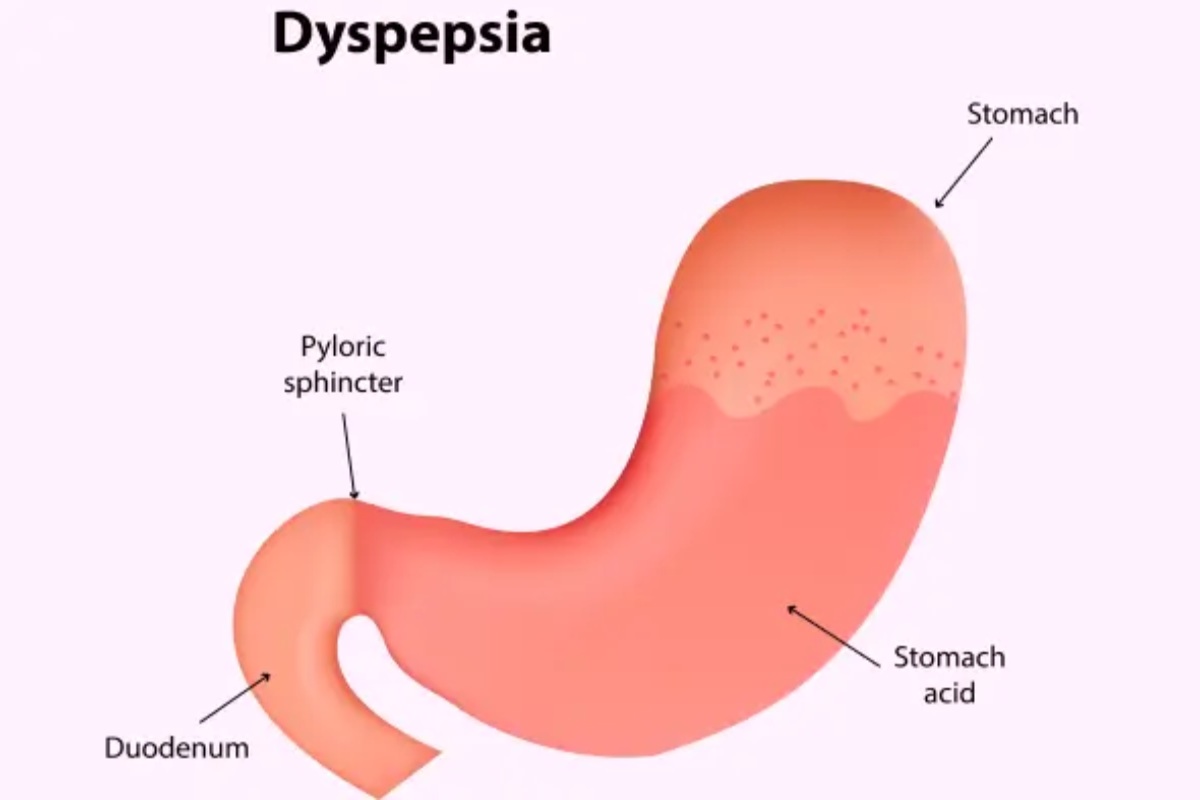Table of Contents
Remedies for Dyspepsia
Remedies for dyspepsia is a common disorder that affects up to 30% of the general population. Symptoms of indigestion include pain or discomfort in the upper abdomen and burning, pressure, or fullness. These symptoms are often, but not necessarily, related to food. Other common symptoms include feeling fullness (early satiety), nausea, belching, and bloating. While symptoms of dyspepsia can develop due to diseases such as peptic ulcer or gastritis, the vast majority of patients with symptoms of dyspepsia have a diagnosis of practical dyspepsia. Functional dyspepsia (FD) is a varied disorder; In other words, various causes can lead to similar symptoms.
What is Dyspepsia?
Dyspepsia or difficulty digestion is a pain in the upper part of the belly that manifests itself, especially after eating. It is a prevalent ailment that can be alleviated by administering medications to reduce the acidity of the stomach and stomach protectors. However, it is sometimes related to stress, alcohol use, smoking, eating high-fat foods, or eating too quickly. Therefore, digesting discomfort can be reduced if healthy habits are acquired in the diet and daily routines. In any case, it is a benign problem without significant consequences, although it is chronic and may appear and disappear spasmodically over the years.
Symptoms Remedies for Dyspepsia
The most common symptom among patients suffering from this disease is discomfort in the upper abdomen, which usually manifests during or after meals. This pain can be described as heat or burning in the area between the navel and the lowest part of the sternum, in addition to the uncomfortable bloating sensation at the start of meals or at the end of them. However, these discomforts have nothing to do with heartburn since its symptoms usually start in the chest and can spread to the neck or throat.
Medical Tests for Dyspepsia
When diagnosing dyspepsia, specialists resort to two tests to carry out a medical examination with guarantees:
Abdominal Ultrasound
Gastrointestinal endoscopy: An exam that is performed to obtain images of the oesophagus, stomach, and duodenum to detect and identify if there are injuries of any kind.
What are the Causes and Remedies for Dyspepsia?
There is a tremendous general lack of knowledge about the causes of dyspepsia. To begin with, in some cases, the symptoms occur after a large meal or after taking medicines that cause some damage to the gastric mucosa, specifically aspirin or anti-inflammatories
Some psychological glitches, such as stress, anxiety, or depression, can trigger the disease.
There are cases in which patients may suffer from a stomach ulcer in the duodenum area, caused mainly by a bacterium called Helicobacter pylori. The most common causes of dyspepsia are:
- Excessive alcohol consumption
- Intake of spicy or greasy foods
- Food intake in large quantities and for a short time
- smoking
- High-fibre foods
- Excessive caffeine consumption.
Can it be Prevented?
You can perform some habits that will help prevent this type of disease, such as:
Relax and take a break after eat. Specialists recommend avoiding stress and exercising immediately after eating.
It is essential to chew carefully and not to swallow the food immediately after putting it in the mouth.
On the other hand, if the enduring has previously suffered episodes of dyspepsia, it is advisable to avoid taking approximately medicines, such as aspirin and some anti-inflammatories, on an empty stomach.
Therapeutic Options Remedies for Dyspepsia
1. Diet
Most FD patients have symptoms associated with food intake. Therefore, various dietary recommendations are often made, although no clinical trials have option formally evaluate specific nutritional interventions in treating FD. There is limited data to propose that a fatty diet may induce or exacerbate symptoms, and patients often report improvement with lower-calorie meals and smaller-portioned meals.
2. H. Pylori Eradication
Although testing and treatment for H. pylori is recommended and usually used, eradication of H. pylori infection does not generally improve symptoms not associated with peptic ulcer disease. In FD patients, there is a small benefit over a placebo in eradicating H. pylori. A recent analysis found that only one in 14 FD patients infected with H. pylori benefits from treatment.
3. Acid-Lowering Medications
H2 blockers, such as ranitidine, cimetidine, nizatidine, or famotidine, are the initial agents used by primary care physicians and are partially better than placebo in improving mid-upper abdominal (epigastric) pain. However, they do not improve the others—dyspeptic symptoms. If H2 blockers fail to improve symptoms, most doctors use a proton pump inhibitor (PPI)-omeprazole, lansoprazole, rabeprazole, pantoprazole, or esomeprazole. Nevertheless, this strategy’s short-term risks are low and may provide symptom relief in a small number of people, most of whom may have asymptomatic acid reflux.
Treatment of Dyspepsia
Functional dyspepsia that is long-lasting and is controlled by lifestyle changes may require treatment. What treatment you receive is contingent on your signs and indications. Treatment may combine medications with behaviour therapy.
Medications
Medications that may help in handling the signs and indications of functional dyspepsia include:
Over-the-counter gas remedies: Drugs that contain the element simethicone may provide some relief by reducing intestinal gas. Instances of gas-relieving treatments comprise Mylanta and Gas-X.
Medications to reduce acid manufacture: Called H-2-receptor blockers, these medicines are available over-the-counter and comprise cimetidine (Tagamet HB), famotidine (Pepcid AC), then nizatidine (Axid AR). Sturdier versions of these medications are obtainable in prescription form.
Medications that block acid ‘pumps.’ Proton heart inhibitors shut unhappy the acid “pumps” within acid-secreting stomach cells. Over-the-counter proton pump inhibitors include lansoprazole (Prefaced 24HR), omeprazole (Prilosec OTC), and superfemale (Nexium 24HR). Proton pump inhibitors are also obtainable by prescription.
Antibiotics: If tests indicate a common ulcer-causing bacterium called H. pylori in your stomach, your doctor may recommend antibiotics in a mixture with acid-suppressing medication.
Low-dose antidepressants: Tricyclic antidepressants and medications recognized as selective serotonin reuptake inhibitors, taken in low doses, may help constrain the activity of neurons that control intestinal pain.
Prokinetics: Prokinetic go-betweens help your stomach empty more rapidly and may help tauten the valve between your stomach and exophages, reducing the probability of upper abdominal discomfort.
Medications to relieve biliousness (anti-emetics): If you feel nauseous after eating, your doctor may recommend an anti-emetic, such as promethazine, prochlorperazine, or meclizine.
Types of Remedies for Dyspepsia
There are two types of dyspepsia:
Functional dyspepsia: That which occurs without apparent cause and is caused by an organic problem.
Organic dyspepsia: In this type, dyspepsia is caused by organic damage.
What are the Causes and Risk Factors?
In general, dyspepsia is not usually a sign of any severe illness. As with other symptoms such as headaches, for example, it is common for no lesion or pathology. I found that justifies the discomfort it entails. However, in this case, it considers functional dyspepsia, and there is a hypothesis. It is due to an augmented sensitivity of the stomach and intestines or to an abnormal perception of the person.
The important thing is to see a doctor because when there is an identifiable cause, one of the most frequent is a stomach infection by Helicobacter pylori bacteria -which can cause a peptic ulcer- and it is treatable; or gastroesophageal reflux disease (GERD). Dyspepsia can also cause by abnormalities of the ducts of the pancreas and bile ducts, metabolic disorders such as hypothyroidism or acidosis, or, more rarely, cancer of the stomach or exophages.
Conclusion
Dyspepsia or indigestion refers to discomfort and pain in the upper abdomen. Some patients complain of pain, bloating, heartburn, or nausea, while others have indigestion. If but generally speaking, everyone has discomfort in that area. Dyspepsia is a set of indications that originate in the upper gastrointestinal tract. It is without any structural cause or metabolic disease that could explain them. In patients with dyspepsia, the stomach does not relax in response to a meal, and alterations in gastric. Contractions and emptying also observe.

